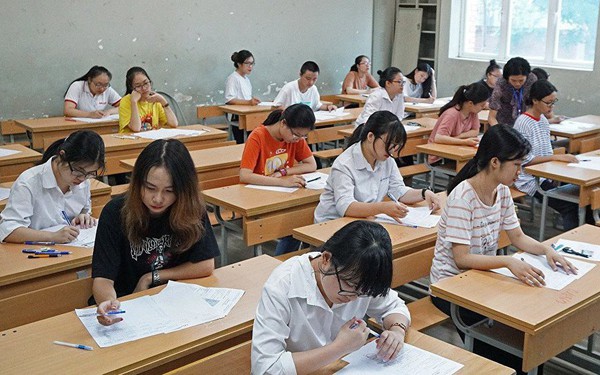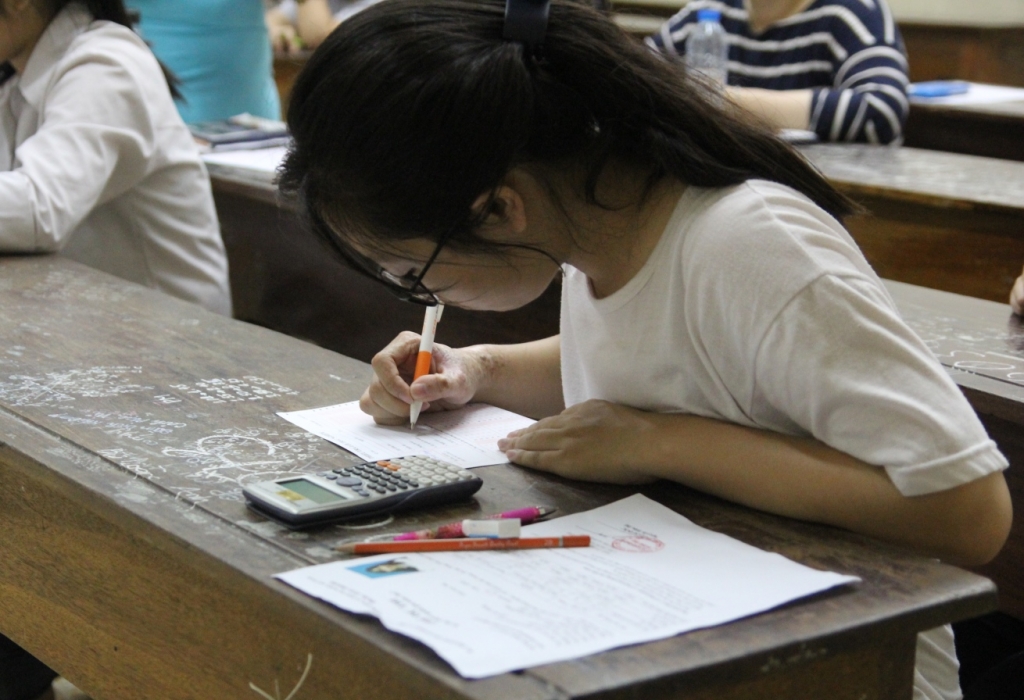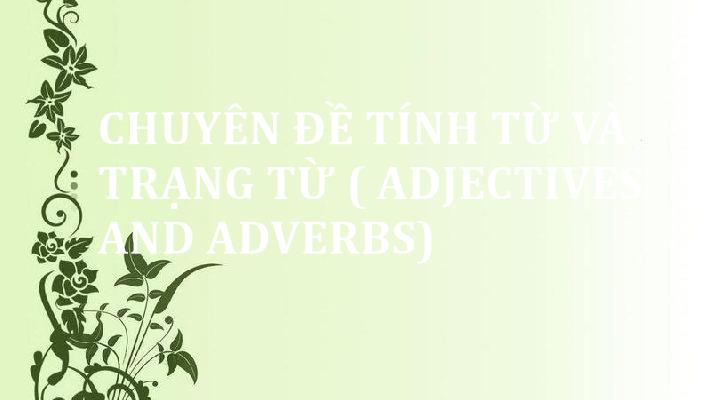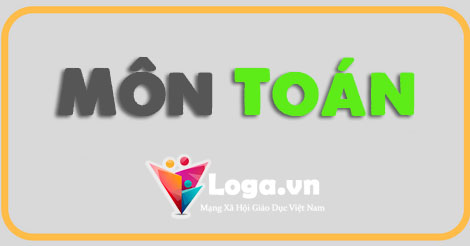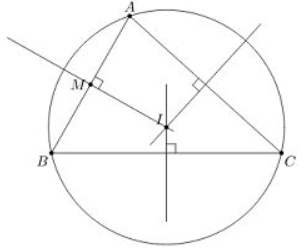UNIT 3. MUSIC
Âm nhạc
- Từ vựng:
- air /eə(r)/ (v): phát thanh/ hình
- audience /ˈɔːdiəns/ (n): khán/ thính giả
- biography /baɪˈɒɡrəfi/ (n): tiểu sử
- celebrity panel /səˈlebrəti - ˈpænl/ (np): ban giám khảo gồm những người nổi tiếng
- clip /klɪp/ (n): một đoạn phim/ nhạc
- composer /kəmˈpəʊzə(r)/ (n): nhà soạn nhạc
- contest /ˈkɒntest/ (n): cuộc thi
- dangdut (n): một loại nhạc dân gian của In-đô-nê-xi-a
- debut album /ˈdeɪbjuː - ˈælbəm/(np): tập nhạc tuyển đầu tay
- fan /fæn/ (n): người hâm mộ
- global smash hit /ˈɡləʊbl - smæʃ - hɪt/(np): thành công lớn trên thê giới
- idol /ˈaɪdl/ (n): thần tượng
- judge /dʒʌdʒ/ (n): ban giám khảo
- phenomenon /fəˈnɒmɪnən/(n): hiện tượng
- platinum /ˈplætɪnəm/(n): danh hiệu thu âm dành cho ca sĩ hoặc nhóm nhạc có tuyển tập nhạc phát hành tối thiểu 1 triệu bản
- pop /pɒp/ (n): nhạc bình dân, phổ cập
- post /pəʊst/ (v): đưa lên Internet
- process /ˈprəʊses/ (n): quy trình
- release /rɪˈliːs/ (v): công bố
- Ngữ pháp:
- Adjectives of attitude (Tính từ chỉ thái độ):
- Một số tính từ chỉ thái độ thông dụng:
|
Surprised: ngạc nhiên |
Surprising: làm ngạc nhiên |
|
Excited: hạnh phúc, vui vẻ |
Exciting: làm cho vui vẻ, hạnh phúc |
|
Embarrassed: xấu hổ, mắc cỡ |
Embarrassing: làm cho xấu hổ, mắc cỡ |
|
pleased: làm cho hài lòng tired: mệt mỏi |
Pleasing: hài lòng tiring: làm cho mệt mỏi |
|
frightened: làm cho sợ sệt |
frightening: sợ sệt |
|
Worried: làm cho lo lắng |
Worrying: lo lắng |
|
Bored: chán nản, chán |
Boring: làm cho chán nản |
- Tính từ chỉ thái độ là tính từ mô tả thái độ hoặc cảm xúc của một người
- Phân từ năng động (verb + ing) và phân từ thụ động (verb + ed) có thể được dùng làm tính từ.
- Phân từ năng động và phân từ thụ động có thể được sử dụng trước danh từ.
- Khi mô tả người, vật, sự việc tạo ra cảm xúc, ta dùng hiện tại phân từ. (Create the feeling)
- Cách dùng:
- Nếu ngay phía sau có danh từ thì dùng "ING"
- Nếu ngay phía sau không có danh từ thì nhìn phía trước: nếu gặp người thì dùng "ED", nếu gặp vật thì dùng "ING"
- Đa số Ved hay dùng cho người và Ving hay dùng cho vật . Tuy nhiên ta phải xét về cách dùng để tránh nhầm.
- Compound sentences (Câu ghép):
Một câu ghép được kết nối bằng:
- Chấm phẩy hoặc dấu hai chấm.
Ex: I met David yesterday; he’s just come out of hospital.
Hôm qua tôi gặp David; anh ta vừa ra khỏi bệnh viện.
- Liên từ kết như: and, but, so, yet đôi khi đứng trước những từ này bởi một dâu phẩy.
Ex: He loves her but she doesn’t love him.
Anh ấy yêu cô ấy nhưng cô ấy thì không.
The party lasted until midnight, so everyone was tired.
Buổi, tiệc kéo dài đến đến nửa đêm, vì vậy ai cũng mệt.
- Từ chuyến tiếp như: however, nevertheless, therefore.
Từ chuyến tiếp có thể đứng đầu câu, trong câu hay cuối câu, tùy vào cái mà tác giả muốn nhấn mạnh. Chúng thường được phân biệt bởi dấu phẩy hay chấm phẩy với phần còn lại của câu.
Ex: I didn’t study; therefore, he failed the test.
I didn’t study. He; therefore, failed the test.
- Infinitives (Hình thức nguyên thể)
Dùng + V1 ở các trường hợp dưới:
- Sau các trợ động từ khiếm khuyết: can, could, may, might, must, need, shall, should, will, and would
- Sau các ngữ động từ như: had better, would rather, would sooner,...
- Sau “let/ make/ have/ help + túc từ”
- Sau “động từ chi tri giác + túc từ như: see, hear, feel, watch,...
Dùng + to V1 ở các trường hợp dưới:
- Đứng sau “for” và “of” + túc từ
Ex: The machine is too heavy for me to lift. Cái máy nặng quá tôi nhấc không nổi.
It was kind of you to help. Cảm ơn bạn đã giúp đỡ.
- Câu có ý chỉ mục đích, kết quả
Ex: I saved money to buy a bicycle. Tôi đã tiết kiệm tiền để mua một chiếc xe đạp.
- Sau the first, the second, the last, the only hoặc sau hình thức so sánh cực cấp để thay cho mệnh đề quan hệ.
Ex: They are the first to leave all their money to charity.
Họ là những người đầu tiên để lại toàn bộ tiền bạc cho công cuộc từ thiện.
- Sau too + tính từ thì phó từ, too + tính từ + a + danh từ, tính từ + phó từ + enough.
Ex: He is too short to become a pilot. Anil ấy quá thấp, nên không thể làm phi công.
- Sau các danh từ Ability, ambition, anxiety, attempt, decision, demand, desire, determination, eagerness, effort, failure, offer, plan, promise, refusal, request, scheme, willingness, wish.
- Bài tập mẫu:
Bài tập 1: Khoanh vào đáp án đúng nhất trong các câu dưới đây
- Linda is ____________ in buying a new house for her parents.
A. interest
B. interested
C. interesting
D. interestingly
- Everybody is _____________ that his younger brother passed the TOEIC test the last day.
A. surprised
B. surprising
C. surprise
D. surprisingly
- This film is __________.
A. bore
B. bored
C. boring
D. boringly
- My mother is a busy teacher. At the end of the day’s work, she is often ___________.
A. exhaust
B. exhausting
C. exhausted
D. exhaustingly
- Sandy is starting a new job next Monday. She’s quite ______________ about it.
A. excite
B. excited
C. excitingly
D. exciting
- Many meetings aren’t so ______________ as this one was.
A. interest
B. interested
C. interesting
D. interestingly
- My grandfather was __________by how shocking the accident was yesterday.
A. shock
B. shocking
C. shocked
D. shockingly
- Windy was ____________ by the confusing street signs in that city.
A. confusing
B. confuse
C. confused
D. confusingly
- Kin was very __________ in the history lesson. He almost fell asleep.
A. bore
B. boring
C. bored
D. boringly
- Feeling tired and _____________, Peter went out alone.
A. depressed
B. depressin
C. depress
D. depressingly
Bài tập 2: Điền từ thích hợp vào chỗ trống:
and but or so for
- I feel tired, _____I feel weak.
- The Japanese eat healthily, _____they live for a long time.
- I have flu, _____I don't feel very tired.
- You should eat less fast food, _____you can put on weight.
- You can go and see the doctor, _____you can go to bed now and rest.
- The Japanese eat a lot of rice, _____they eat lots of fish, too.
- I want to eat ice-cream, _____I have a sore throat
- You should eat less fast food, _____you can put on weight.
- The Americans often eat fast food, _____ many of them are overweight.
- You can walk, _____ you can ride a bike to get there.
Bài tập 3: Hoàn thành các câu sau:
- You may have an allergy. Be careful with what you eat and drink. (so)
- Tom has a temperature. Tom has a sore throat. (and)
- I want to buy other car. I have no money. (but)
- It’s raining. I will stay at home and sleep. (so)
- I pass the test. My parents took me to the cinema. (therefore)
- I feel sleepy. I must finish the report. (however)
- His shoes are worn. He has no socks. (for)
- I wanted to buy a set of Lego. I started to save my money. (so)
- I enjoy visiting many different countries. I wouldn’t want to live overseas. (yet)
- I couldn’t go to your party. I was tired. (for)
Hướng dẫn:
Bài tập 1: Khoanh vào đáp án đúng nhất trong các câu dưới đây
- Chọn B (chủ ngữ chỉ người nên dùng tính từ đuôi ed)
- Chọn A (chủ ngữ chỉ người nên dùng tính từ đuôi ed)
- Chọn C (chủ ngữ chỉ vật nên dùng tính từ đuôi ing)
- Chọn C (chủ ngữ chỉ người nên dùng tính từ đuôi ed)
- Chọn B (chủ ngữ chỉ người nên dùng tính từ đuôi ed)
- Chọn C (chủ ngữ chỉ vật nên dùng tính từ đuôi ing)
- Chọn C (chủ ngữ chỉ người nên dùng tính từ đuôi ed)
- Chọn C (chủ ngữ chỉ người nên dùng tính từ đuôi ed)
- Chọn C (chủ ngữ chỉ người nên dùng tính từ đuôi ed)
- Chọn A (tính từ tired phía trước dùng ed nên tính từ dùng cùng lúc cũng dùng tính từ đuôi ed).
Bài tập 2: Điền từ thích hợp vào chỗ trống:
- and
- so
- but
- or
- or
- and
- but
- for
- so
- or
Bài tập 3: Hoàn thành các câu sau:
- You may have an allergy, so be careful with what you eat and drink.
- Tom has a temperature and a sore throat.
- I want other car but I have no money.
- It’s raining, so I’ll stay home and read.
- I passed the test; therefore, my parents took me to the circus.
- I feel sleepy; however, I must finish the report.
- His shoes are worn, for he has no socks.
- I wanted to buy a set of Lego, so I started to save my money.
- I enjoy visiting many different countries, yet I wouldn’t want to live overseas.
- I couldn’t go to your party, for I was tired.
- Bài tập tự luyện có đáp án:
Bài tập 1: Chọn đáp án đúng:
- Dave is ………. at the new laptop that his dad buys for him.
a. exciting b. excited
- The new laptop is ………. to Dave with many interesting game.
a. exciting b. excited
- Dave is very………. to hear that his dad will buy a new laptop for him.
a. surprising b. surprised
- Dave is ………. in the new laptop that he has.
a. interesting b. interested
- The new laptop is ………. to Dave.
a. interesting b. interested
- Dave is so………. because of working hard all day.
a. tiring b. tired
- Dave feels so ………. because of working hard all day.
a. tiring b. tired
- Working hard all days is ………. to Dave.
a. tiring b. tired
- Firework is always ………. Dave on New Year Eve.
a. frightening b. frightened
- Dave is always ………. with firework on New Year Eve.
a. frightening b. frightened
Bài tập 2: Viết lại câu dưới đây sao cho nghĩa không đổi
- Junior is bored with his job at present. (boring)
- This funny film was entertaining my family. (entertained)
- My elder brother likes playing video games every Sunday. (interested)
- That football match was exciting for me yesterday. (excited)
- Her children are interested in swimming in the morning every summers. (keen on)
Bài tập 3: chọn đáp án thích hợp
- My father usually helps me_______ English.
a. to learn b. lean c. learning d. both a and b
- He was heard_______ shout.
a. to b. of c. by d. at
- This student expected_______ the first winner of the Grand Prix.
a. be b. being c. to be d. will be
- I told her_______ about her wedding; everything will straighten out.
a. Don't worry b. not to worry c. no worry d. not worry
- May I suggest you let_______
a. Mary doing so b. Mary do so c. Mary does to d. Mary to do so
- She_______ him when he called her.
a. pretended not hear b. pretended she heard not
c. pretended not to hear d. did not pretend hear
- The doctor advised_______ late.
a. me not staying up b. me not stay up c. me not to stay up d. I did not stay up
- The school superintendent told me_______
a. hurrying up b. to hurry up c. hurry up d. hurried up
- "_______us face the enemies", shouted the soldiers.
a. Make b. Let c. Leave d. Keep
- Mr. Brown told the schoolgirls_______ in class.
a. don't ear b. not to eat c. eat not d. not eat
- I have heard Dang Thai Son_______ the piano.
a. played b. plays c. play d. to play
- The young teachers wanted a Foreign Language Teaching workshop _______ in Ho Chi Minh City.
a. to be holding b. should hold c. to be held d. to hold
- _______able to take part in the international math contest two years from now, Son works very hard in his math lass.
a. In order to be b. Being c. Been d. So that he be
- Try_______ so many mistakes.
a. not to make b. not make c. to make not d. make not
- Let me_______ from you soon.
a. to hear b. hear c. hearing d. heard
- John is too stupid_______ understand this.
a. to b. not to c. to not d. for
- The wind is_______ to blow the roof off.
a. strong enough b. too strong c. quiet strong d. very strong
- My father is _______ to stay up late.
a. too tired b. enough tired c. tired enough d. so tired
- John wanted me_______ him.
a. to be helping b. help c. to help d. I help
- I want_______ early tomorrow morning.
a. to leave b. leaving c. me leave d. me leaving
ĐÁP ÁN:
Bài tập 1: Chọn đáp án đúng:
1. b 2. a 3. b 4. b
5. a 6. b 7. b 8. a
9. a 10. b
Bài tập 2: Viết lại câu dưới đây sao cho nghĩa không đổi
- Junior’s job is boring at present.
- My family was entertained by this funny film.
- My elder brother is interested in playing video games every Sunday.
- I was exciting about that football match yesterday.
- Her children are keen on swimming in the morning every summers.
Bài tập 3: chọn đáp án thích hợp
1d 2a 3c 4b 5c 6c 7c 8b 9b 10b
11c 12c 13a 14b 15b 16a 17a 18a 19c 20a
CHÚC CÁC BẠN HỌC TỐT <3 NHỚ CHIA SẺ CHO BẠN BÈ CÙNG HỌC NHÉ

